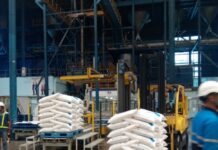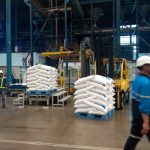With the global sugar market on a verge to witness an enormous deficit mainly because of diminishing prospects for Brazil’s sugarcane crop due to the prolonged drought and the recent frost damage. All eyes are on how the global sugar market would take shape in the coming days, what production numbers Brazil would be having, how India would be playing globally in the upcoming season and many more.
In a recent conversation with ChiniMandi News, Mr. Eduardo Leão de Sous, Executive Director of UNICA shared his views on Brazilian crop, view on the global scenario and India’s way forward towards ethanol.
Excerpts:
What is your latest assessment on the sugarcane crop with issues of dryness and then frost?
The drought that occurred during the 2020-21 harvest season strongly affected the sugarcane crop in the Center-South region of Brazil. In addition, we had three frosts in June and July, which also impacted the sugarcane yields. Therefore, we have currently estimated an average of 15% reduction in the sugarcane crushing for this season.
How will the global sugar and ethanol industry survive and thrive in a post-COVID environment?
The major impact of the pandemic on the global ethanol market was related to isolation measures. Due to the lockdown, people stayed at home and there was no usage of cars, causing the sharp reduction in demand for fuels in general that we saw last year. But with the acceleration of vaccination worldwide and opening up of economies, we expect the demand for ethanol to get back to normal soon. Another important aspect was the clear understanding of the negative environmental impact caused by the burning of fossil fuels. In fact, with reduced vehicles on the roads, there was a significant improvement in air quality of large cities with a reduction of diseases associated with pollutants emitted by gasoline
and diesel.
In terms of sugar, while on the one hand, the pandemic caused a reduction in the short-term demand, on the other hand, some major countries like China also replenished their stocks to strengthen their food security. We do not believe that the pandemic may cause any important impact on the sugar consumption in the medium and long term.
With oil markets experiencing volatile and low pricing, what changes will we see in the sugar mix? Given international trade policy and domestic regulations are rapidly evolving, how do you see major global players stay ahead of the curve?
Oil prices have already returned to pre-pandemic levels, with a direct correlation with ethanol prices. At this moment, despite the uncertainties related to the advance of the Delta variant, apparently, global economy and mobility are recovering. Both sugar and ethanol markets are very dynamic and major producing countries, such as Brazil, can substantiate their decisions of the sugar/ethanol mix, based on the relative price between the two commodities.
With India gearing up and having its ethanol blending target of 20% by 2025, how do
you see the Indian sugar sector going ahead?
India has all the conditions required to quickly increase the supply of ethanol. It can easily divert the juice that has been used to produce surplus sugar to produce ethanol. This would mean risk-management and, at the end of the day, higher income for sugarcane farmers. Looking at the Brazilian case, practically all the sugar mills are attached to distilleries in such a way that they have the option of producing either sugar or ethanol depending on the price ratio between the two products. This is an interesting mechanism to reduce the risk of the farmers and producers, giving them the option to define their production according to the market opportunities and benefit from additional revenue. This flexibility that ethanol can bring to the sugar industry is key to the business.
What piece of advice do you have for Indian ethanol manufacturers?
Predictability is the name of the game here. The more predictability you have, the higher the chances of having a successful ethanol program. Long term and clear rules in place will allow investors and entrepreneurs to feel confident in making their decisions now and in the future.
Again, based on the Brazilian experience, it is fundamental that the private sector works closely with the government, in order to define public policies that provide the correct signals to the manufacturers. Mechanisms such as a clear pricing system and a tax regime that recognises the benefits of biofuels in detriment to fossil fuels are crucial. In my opinion, the most relevant policy should be a mandatory blend of the ethanol into the gasoline, which will ensure that the demand will justify investments in new distilleries in the country. In Brazil, all the gasoline sold in our 40,000 fueling stations has 27% ethanol blended into it.












